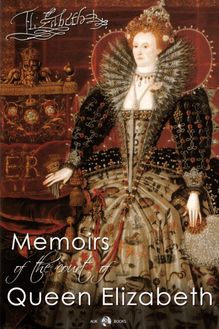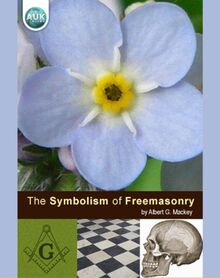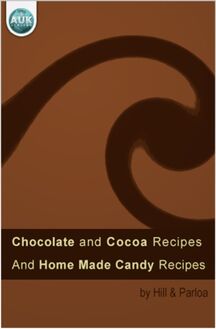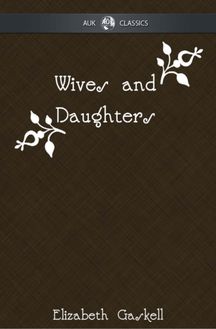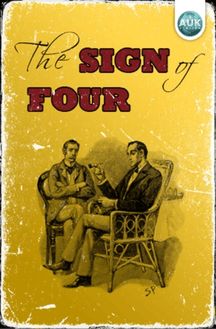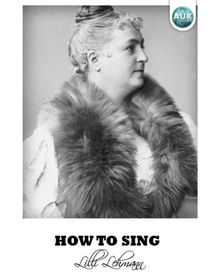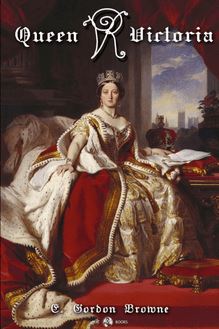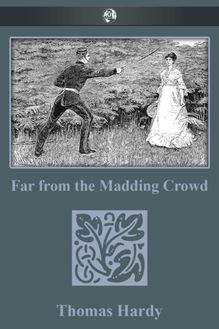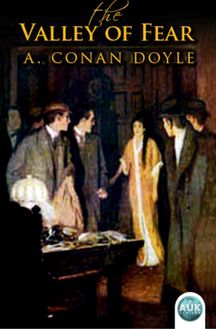-
 Univers
Univers
-
 Ebooks
Ebooks
-
 Livres audio
Livres audio
-
 Presse
Presse
-
 Podcasts
Podcasts
-
 BD
BD
-
 Documents
Documents
-
- Cours
- Révisions
- Ressources pédagogiques
- Sciences de l’éducation
- Manuels scolaires
- Langues
- Travaux de classe
- Annales de BEP
- Etudes supérieures
- Maternelle et primaire
- Fiches de lecture
- Orientation scolaire
- Méthodologie
- Corrigés de devoir
- Annales d’examens et concours
- Annales du bac
- Annales du brevet
- Rapports de stage
La lecture à portée de main
Vous pourrez modifier la taille du texte de cet ouvrage
Découvre YouScribe en t'inscrivant gratuitement
Je m'inscrisDécouvre YouScribe en t'inscrivant gratuitement
Je m'inscrisEn savoir plus
Vous pourrez modifier la taille du texte de cet ouvrage
En savoir plus

Description
Sujets
Informations
| Publié par | Andrews UK |
| Date de parution | 21 juin 2010 |
| Nombre de lectures | 1 |
| EAN13 | 9781849891196 |
| Langue | English |
Informations légales : prix de location à la page 0,0374€. Cette information est donnée uniquement à titre indicatif conformément à la législation en vigueur.
Extrait
Title Page
MEMOIRS OF THE COURT
OF
QUEEN ELIZABETH
Publisher Information
Published by Andrews UK Limited 2010
www.andrewsuk.com
This digital edition, including artwork, typography and formatting is copyright Andrews UK Limited 2010.
All rights reserved. No part of this book may be copied, or transmitted in any form or by any means, electronic, electrostatic, magnetic tape, mechanical, photocopying, recording or otherwise, without the written permission of Andrews UK Limited.
PREFACE
I n the literature of our country, however copious, the eye of the curious student may still detect important deficiencies.
We possess, for example, many and excellent histories, embracing every period of our domestic annals;—biographies, general and particular, which appear to have placed on record the name of every private individual justly entitled to such commemoration;—and numerous and extensive collections of original letters, state-papers and other historical and antiquarian documents;—whilst our comparative penury is remarkable in royal lives, in court histories, and especially in that class which forms the glory of French literature,—memoir.
To supply in some degree this want, as it affects the person and reign of one of the most illustrious of female and of European sovereigns, is the intention of the work now offered with much diffidence to the public.
Its plan comprehends a detailed view of the private life of Elizabeth from the period of her birth; a view of the domestic history of her reign; memoirs of the principal families of the nobility and biographical anecdotes of the celebrated characters who composed her court; besides notices of the manners, opinions and literature of the reign.
Such persons as may have made it their business or their entertainment to study very much in detail the history of the age of Elizabeth, will doubtless be aware that in the voluminous collections of Strype, in the edited Burleigh, Sidney, and Talbot papers, in the Memoirs of Birch, in various collections of letters, in the chronicles of the times,—so valuable for those vivid pictures of manners which the pen of a contemporary unconsciously traces,—in the Annals of Camden, the Progresses of Nichols, and other large and laborious works which it would be tedious here to enumerate, a vast repertory existed of curious and interesting facts seldom recurred to for the composition of books of lighter literature, and possessing with respect to a great majority of readers the grace of novelty. Of these and similar works of reference, as well as of a variety of others, treating directly or indirectly on the biography, the literature, and the manners of the period, a large collection has been placed under the eyes of the author, partly by the liberality of her publishers, partly by the kindness of friends.
In availing herself of their contents, she has had to encounter in full force the difficulties attendant on such a task; those of weighing and comparing authorities, of reconciling discordant statements, of bringing insulated facts to bear upon each other, and of forming out of materials irregular in their nature and abundant almost to excess, a compact and well-proportioned structure.
How far her abilities and her diligence may have proved themselves adequate to the undertaking, it remains with a candid public to decide. Respecting the selection of topics it seems necessary however to remark, that it has been the constant endeavour of the writer to preserve to her work the genuine character of Memoirs, by avoiding as much as possible all encroachments on the peculiar province of history;—that amusement, of a not illiberal kind, has been consulted at least equally with instruction:—and that on subjects of graver moment, a correct sketch has alone been attempted.
By a still more extensive course of reading and research, an additional store of anecdotes and observations might unquestionably have been amassed; but it is hoped that of those assembled in the following pages, few will be found to rest on dubious or inadequate authority; and that a copious choice of materials, relatively to the intended compass of the work, will appear to have superseded the temptation to useless digression, or to prolix and trivial detail.
The orthography of all extracts from the elder writers has been modernized, and their punctuation rendered more distinct; in other respects reliance may be placed on their entire fidelity.
Volume I
CHAPTER I
1533 TO 1536
Birth of Elizabeth.—Circumstances attending the marriage of her parents.—Public entry of Anne Boleyn into London.—Pageants exhibited.—Baptism of Elizabeth.—Eminent persons present.—Proposal of marriage between Elizabeth and a French prince.—Progress of the reformation.—Henry persecutes both parties.—Death of Catherine of Arragon.—Disgrace of Anne Boleyn.—Her death.—Confesses an obstacle to her marriage.—Particulars on this subject.—Elizabeth declared illegitimate.—Letter of lady Bryan respecting her.—The king marries Jane Seymour.
O n the 7th of September 1533, at the royal palace of Greenwich in Kent, was born, under circumstances as peculiar as her after-life proved eventful and illustrious, Elizabeth daughter of king Henry VIII. and his queen Anne Boleyn.
Delays and difficulties equally grievous to the impetuous temper of the man and the despotic habits of the prince, had for years obstructed Henry in the execution of his favourite project of repudiating, on the plea of their too near alliance, a wife who had ceased to find favor in his sight, and substituting on her throne the youthful beauty who had captivated his imagination. At length his passion and his impatience had arrived at a pitch capable of bearing down every obstacle. With that contempt of decorum which he displayed so remarkably in some former, and many later transactions of his life, he caused his private marriage with Anne Boleyn to precede the sentence of divorce which he had resolved that his clergy should pronounce against Catherine of Arragon; and no sooner had this judicial ceremony taken place, than the new queen was openly exhibited as such in the face of the court and the nation.
An unusual ostentation of magnificence appears to have attended the celebration of these august nuptials. The fondness of the king for pomp and pageantry was at all times excessive, and on this occasion his love and his pride would equally conspire to prompt an extraordinary display. Anne, too, a vain, ambitious, and light-minded woman, was probably greedy of this kind of homage from her princely lover; and the very consciousness of the dubious, inauspicious, or disgraceful circumstances attending their union, might secretly augment the anxiety of the royal pair to dazzle and impose by the magnificence of their public appearance. Only once before, since the Norman conquest, had a king of England stooped from his dignity to elevate a private gentlewoman and a subject to a partnership of his bed and throne; and the bitter animosities between the queen’s relations on one side, and the princes of the blood and great nobles on the other, which had agitated the reign of Edward IV., and contributed to bring destruction on the heads of his helpless orphans, stood as a strong warning against a repetition of the experiment.
The unblemished reputation and amiable character of Henry’s “some-time wife,” had long procured for her the love and respect of the people; her late misfortunes had engaged their sympathy, and it might be feared that several unfavorable points of comparison would suggest themselves between the high-born and high-minded Catherine and her present rival—once her humble attendant—whose long-known favor with the king, whose open association with him at Calais, whither she had attended him, whose private marriage of uncertain date, and already advanced pregnancy, afforded so much ground for whispered censures.
On the other hand, the personal qualities of the king gave him great power over popular opinion. The manly beauty of his countenance, the strength and agility which in the chivalrous exercises of the time rendered him victorious over all competitors; the splendor with which he surrounded himself; his bounty; the popular frankness of his manners, all conspired to render him, at this period of his life, an object of admiration rather than of dread to his subjects; while the respect entertained for his talents and learning, and for the conscientious scruples respecting his first marriage which he felt or feigned, mingled so much of deference in their feelings towards him, as to check all hasty censures of his conduct. The protestant party, now considerable by zeal and numbers, foresaw too many happy results to their cause from the circumstances of his present union, to scrutinize with severity the motives which had produced it. The nation at large, justly dreading a disputed succession, with all its long-experienced evils, in the event of Henry’s leaving behind him no offspring but a daughter whom he had lately set aside on the ground of illegitimacy, rejoiced in the prospect of a male heir to the crown. The populace of London, captivated, as usual, by the splendors of a coronation, were also delighted with the youth, beauty, and affability of the new queen.
The solemn entry therefore of Anne into the city of London was greeted by the applause of the multitude; and it was probably the genuine voice of public feeling, which, in saluting her queen of England, wished her, how much in vain! a long and prosperous life.
The pageants displayed in the streets of London on this joyful occasion, are described with much minuteness by our chroniclers, and afford ample indications that the barbarism of taste which permitted an incongruous mixture of classical mythology with scriptural allusions, was at its height in the learned reign of our
-
 Univers
Univers
-
 Ebooks
Ebooks
-
 Livres audio
Livres audio
-
 Presse
Presse
-
 Podcasts
Podcasts
-
 BD
BD
-
 Documents
Documents
-
Jeunesse
-
Littérature
-
Ressources professionnelles
-
Santé et bien-être
-
Savoirs
-
Education
-
Loisirs et hobbies
-
Art, musique et cinéma
-
Actualité et débat de société
-
Jeunesse
-
Littérature
-
Ressources professionnelles
-
Santé et bien-être
-
Savoirs
-
Education
-
Loisirs et hobbies
-
Art, musique et cinéma
-
Actualité et débat de société
-
Actualités
-
Lifestyle
-
Presse jeunesse
-
Presse professionnelle
-
Pratique
-
Presse sportive
-
Presse internationale
-
Culture & Médias
-
Action et Aventures
-
Science-fiction et Fantasy
-
Société
-
Jeunesse
-
Littérature
-
Ressources professionnelles
-
Santé et bien-être
-
Savoirs
-
Education
-
Loisirs et hobbies
-
Art, musique et cinéma
-
Actualité et débat de société
- Cours
- Révisions
- Ressources pédagogiques
- Sciences de l’éducation
- Manuels scolaires
- Langues
- Travaux de classe
- Annales de BEP
- Etudes supérieures
- Maternelle et primaire
- Fiches de lecture
- Orientation scolaire
- Méthodologie
- Corrigés de devoir
- Annales d’examens et concours
- Annales du bac
- Annales du brevet
- Rapports de stage

